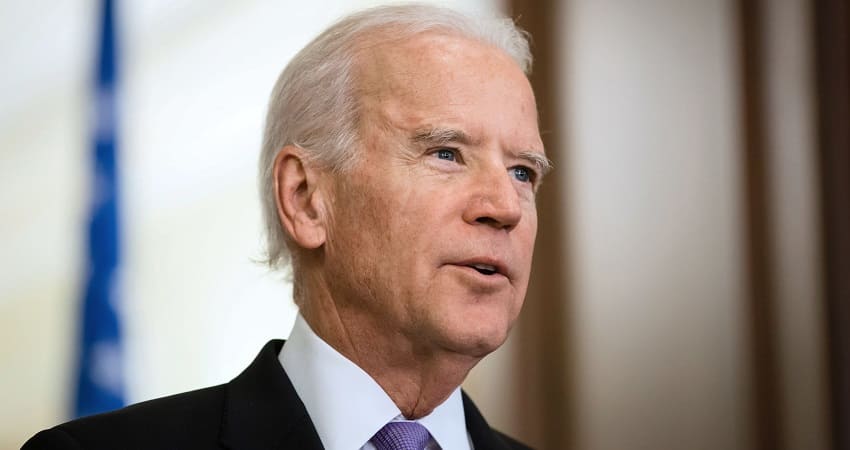Following a heavily contested election and completion of procedural formalities by the electoral college there is finally clarity on the outcome of the US electoral process. Joseph R. Biden Jr. will be sworn in as the 46th US President on 20 January, 2021 and along with it a new administration will assume charge of the executive branch of the government. The transition process has been a tumultuous one as claims of voter fraud and election interference by malicious foreign actors have called in to question the legitimacy of the results necessitating a limited legislative and judicial review of this exercise.
Despite the uncertainty, President-elect Biden quietly prepares to take office and has begun to assemble key members of his executive team while also commencing policy planning and formulation. Leaving geo-politics aside and the fast-changing strategic realignments, an important consideration for key stakeholders in the region is centred on the incoming regime’s economic and trade policy and its ensuing implications for all participants involved.

Syed Razif Al-Idid, Head of CIMB Private Banking Singapore

Alicia Garcia-Herrero, Chief economist – APAC at Natixis
Will there be a significant departure on international political and economic policy from the outgoing Trump administration especially on regional economic partnerships and US trade positions in Asia and should we anticipate a reversal to Obama era policies? The short answer would be a yes on economic collaboration with Asia and a no on the US-China trade war – even in the short to medium term as domestic political compulsions and changed geo-political environment will likely compel the Biden administration to act cautiously. As Syed Razif Al-Idid, head of CIMB Private Banking Singapore, remarked, “We expect Biden to renew ties with China in a strategic gradualism fashion to heal rifts created by past administration, but not conceding anything, yet.”
From “America First” to international cooperation
It has been clearly established that President Trump had undertaken populist measures of protectionism such as withdrawal from the Obama era signature Trans-Pacific Partnership (TPP) program and application of tariffs on its largest trading partner China as a means to reverse the continued “de-industrialisation” of the US economy while also correcting the ever-widening US balance of trade deficit.
However, with a Biden presidency’s reengagement with Asia through potentially new trade deals should not be discounted. Alicia Garcia-Herrero, chief economist – APAC at Natixis considered that “the US is going to come back on multilateralism and also back to Asia. China is trying to get ready by creating new regional integration and trying to keep the US at bay but it will be hard, to start because China is growing but imports are not back.” She added that “the US will be back with huge imports from the region.”

Syed Razif Al-Idid, Head of CIMB Private Banking Singapore
Nishad Majmudar, sovereign risk analyst at Moody’s Investors Service concurred on multilateralism, observing that “this will not stop ongoing structural shifts that have accelerated during the coronavirus pandemic. These include the restructuring of supply chains globally to emphasise self-sufficiency and further consolidation of the global economy into three distinct blocs centered around China, the EU, and the US.
However, Majmudar does not believe that US will join any multilateral trade agreements in the near term due to the new administration’s likely focus on domestic employment challenges. “The recent completion of Regional Comprehensive Economic Partnership (RCEP) trade agreement will accelerate intra-Asia trade flows and China’s rising influence, with a positive credit impact for the most export-oriented sovereigns in Asia.”
Deepening of US-China trade tensions still in the offing
In response, President-elect Biden has already indicated that he will not make any “immediate moves” to lift the existing tariff regime on Chinese imports before a complete review of the phase one deal has been conducted and traditional US allies are consulted on the matter. Al-Idid opined that “strategically, it was never a wise move by Trump and US administration to accost Asia-Pacific, especially China, with a trade war. Supply chains have become very inter-linked and integrated globally since China’s accession to the World Trade Organization (WTO) in 2001, that any attempt to devalue that relationship invariably yield weaker global GDP growth, as witnessed since 2018.”
Garcia-Herrero believes the US-China trade tensions, “will continue but in a different way. No reset but more moderation and elegance” adding that it is “possibly more dangerous for China since Biden will manage to pull allies on its side.” The new administration has already signalled that trade policy will be a “critical pillar” of its foreign policy and will be looking to limit China’s record of “abusive trade practices” as a means of correction is reasonably expected. Syed points out that, “Biden will have to contend with controversial issues like intellectual property, market access, labour and environmental standards amongst others.”
Majmudar asserted that “the tone of the US-China relationship may change under Biden, which could provide somewhat greater policy certainty. However, his administration is likely to maintain most if not all Trump-era restrictions and policy measures against China, particularly tariffs and restrictions on sensitive technology. The measures provide Biden leverage in future negotiations, but also reflect a longer term, bipartisan view within the United States of China as a strategic rival.”
Asia-based banks and corporates adopt a wait and see approach
The evolving international economic order has forced banks and corporates in the region to rethink their approach given the dynamic and fast-changing environment. A Biden presidency is likely to be more predictable, stable and less combative in terms of inter-state relations and one that is predicated on mutual collaboration and cooperation. Fundamentally, the tone of US-China relations is likely to be reset and this “thawing of relations is an immediate benefit for banks and corporates in the region” observes Syed but one should be under no illusion that the new administration will compromise on its core economic interests.
Al-Idid stated categorically, “CEOs the world over have suspended key strategic business decisions given volatile trade tariffs posturing and outcomes. This has led to earnings erosions and curtailed borrowing appetite as business expansions are left on the back burner. If some kind of harmonised provisions could be weaved into existing trade framework (be it APEC, RCEP, or a hybrid of both), banks and corporates in the region will surely benefit.”
It remains to be seen how quickly the US will re-engage through such type of multilateral economic frameworks but as Al-Idid aptly remarked, “the cogs in the wheels can turn again and many sectors thrive in response to a recovery from the double-whammy effects of trade tariffs and coronavirus pandemic,” which would certainly be a win-win for everyone.




All Comments